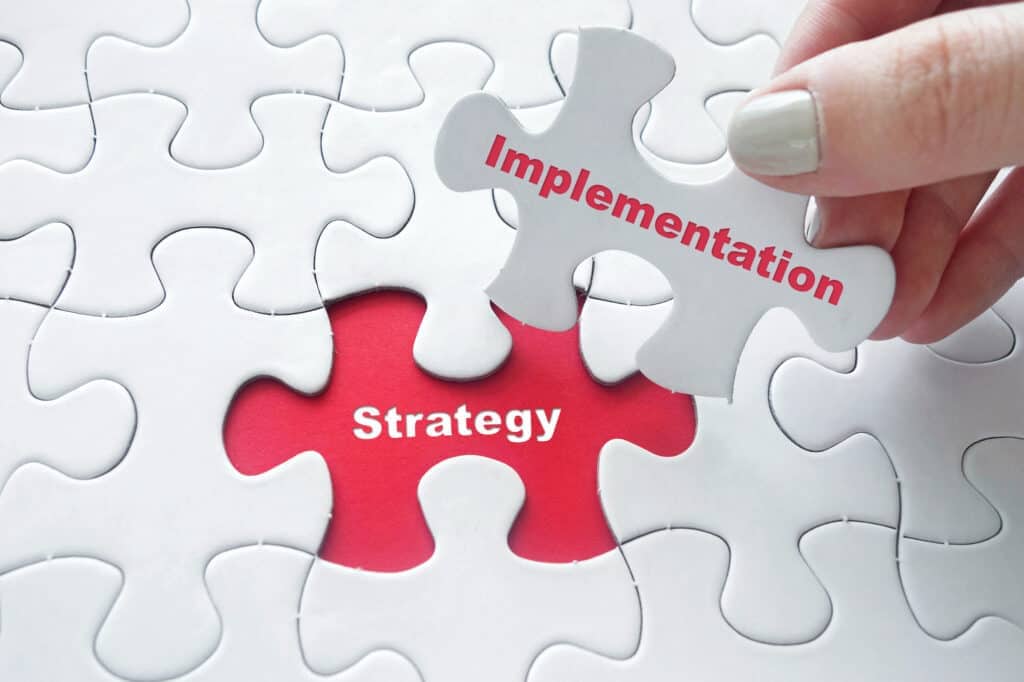7 Mistakes To Aviod When Implementing An ERP
Implementation of any large-scale and complex system in a business will inevitably come with its own set of challenges. And an enterprise resource planning (ERP) solution is no exception. Therefore, being aware of these challenges beforehand and taking steps to avoid them is your best bet to avoid a costly implementation failure.

What are these mistakes?
Some of the biggest mistakes that companies make before implementing an ERP are having unrealistic expectations (urge to go fast, aka no plan), not embracing necessary change, not considering the full cost, beginning the process without cleaning and structuring data, excessive customization, not asking the right questions, and minimizing how important people are to the success of this transition.
1. Planning the Implementation
An ERP is not just any tool a business can use with no proper implementation; it takes months for an ERP to be fully implemented and ready to use, making planning for this process imperative. This long, tedious process is because an ERP system encompasses all aspects of your business, ensuring that all your customer data and configurations are all figured out and ready to use. This means that there must be clear planning and communication with your team when deciding to implement an ERP system.
2. Embrace Change
Another important aspect needed in this process is having an open mind and being open to change. So many companies have become accustomed to the software that they have been using for decades and worry about the upfront costs associated with switching to a cloud-based ERP system, but what they don’t realize is how much money they will be saving in the long run if only they are willing to invest in an ERP system today.
It’s easy to become content with the systems that have been in place for years. Getting your employees to recognize the need for necessary change can be challenging for any business. This can be especially challenging when it comes to an ERP system, due to the massive changes that come along with implementation. To combat these issues, placing the focus on the positive impact that this new system will bring to your employees and their tasks is key. That is why change management is essential. With uncontrolled and badly managed changes, a system that’s meant to make things more efficient and easier can end up becoming chaotic, making it difficult to maintain and use. A well-defined change management strategy that includes effective communication and end-user training will help ensure acceptance and facilitate the adoption process.
3. Understanding your needs
When it comes to an ERP system, it is essential to know your current and future business needs to select the right ERP. Not all ERPs are the same; some focus entirely on one module and require vast configuration and customization to tailor the ERP to your basic requirements. In addition, many ERPs require third-party consultants to customize and implement the ERP to your business which increases the price tremendously. Therefore, completely comprehending how your business will use the ERP system and what specifications it will need will aid in searching for a suitable ERP. Ultimately, finding an ERP that best fits your current and future goals is imperative and must not be overlooked.
4. Over Customizing
Up to 93% of companies customize their ERP based on their intended purpose, but this excessive customization and adding of features, can lead to the over complexity of an ERP system and ultimately lead to failure due to difficulty of use. More customization isn’t always better and it’s best to keep those to a minimum. Taking the time to understand exactly what features you require and sticking with those is a key factor in success.
 5. Clean Your Data
5. Clean Your Data
At this stage, once a company accepts that switching over is the best decision, starting with clean data and not having duplicates of files can help immensely when organizing your resources. Remember that this is a whole new system that needs the correct data to optimize current and future operations; hence having up-to-date data and organized information will enhance the use of the ERP. Cleaning out your data will further optimize your new ERP system allowing for an effective and efficient way of using it. Taking the time to clean your data can help save you time on your ERP implementation because it can help prevent problems down the road.
That is why taking the time to go in and review documents to get rid of any copies and duplicates can help save you time and money and make the transition easier.
6. Asking the right questions
Being overly confident and not asking for help and clarification when necessary can be the worst mistake a company can make when implementing an ERP system. As in any implementation process, costs can creep up and add up quickly. Therefore, not being diligent with making sure you ask all the right questions and trying to figure things out on your own can lead to avoidable but costly mistakes. Vendors are there to help you get the most out of your ERP system and to make sure they can optimize the system’s functionality, including what works, and especially what doesn’t. Not being afraid to ask the right questions during this process can make your and your employee’s time during this adjustment period much easier.
7. Dedicated team
The final mistake most made during the transition process is not realizing how important people are to this process. Having the right team with the right attitude and willingness to put in the time to learn new software, while doing your best as a manager to be patient with your employees as they are learning a new system can greatly aid in preventing costly mistakes and smoothly transitioning over.
If you are open and do not have unrealistic expectations, and make sure you have the right people who are willing to put in some time to make this transition possible, many of these mistakes can be avoided and the process will in turn be less stressful and costly.
The Kechie Solution
To avoid these struggles that come along with your company’s growth and the hassle of implementing an unsatisfactory ERP, selecting Kechie ERP will give you the competitive edge you need to make this process as simple as possible. Having the right software in place and collaborating with the right people can help you make the transition much more enjoyable and rewarding in the end.
Contact us today to schedule a demo or learn more about how Kechie from My Office Apps can redefine your Inventory Management process.
